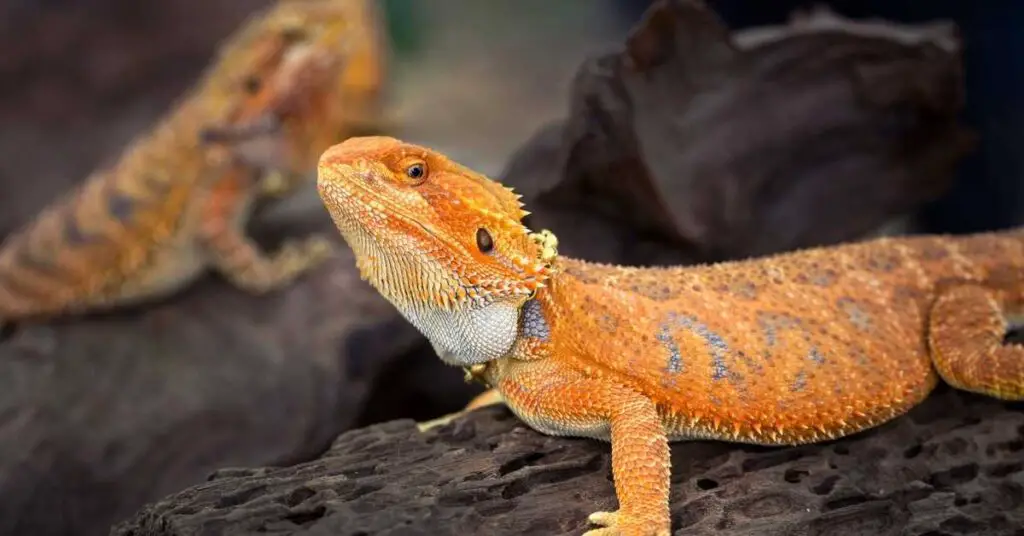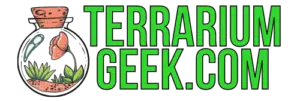Can bearded dragons eat squash? You may be wondering if this tasty vegetable can be included in your beardie’s diet. Well, the answer is not as straightforward as you might think.
While squash can provide some nutritional benefits, there are important considerations to keep in mind. In this discussion, we will explore the nutritional composition of squash, safe varieties for bearded dragons, dos and don’ts of feeding squash, potential health benefits, as well as the risks and concerns associated with incorporating squash into their diet.
So, let’s dive into the world of squash and find out if it’s a suitable addition to your bearded dragon’s menu.
Key Takeaways
- Squash is a nutritious addition to a bearded dragon’s diet, providing vitamins, minerals, and fiber.
- Safe varieties of squash for bearded dragons include butternut squash, acorn squash, spaghetti squash, kabocha squash, and pumpkin.
- Squash should be thoroughly washed, cooked, and served in small, bite-sized pieces to aid digestion and prevent choking hazards.
- Squash should be fed in moderation as part of a balanced diet, and other vegetables and leafy greens should also be included for optimal nutrition.
Nutritional Composition of Squash
Squash is a nutritious vegetable that provides a variety of essential vitamins and minerals. It can be a great addition to your diet, whether you’re looking for a healthy meal or a delicious treat.
When it comes to squash recipes, the possibilities are endless. From roasted butternut squash to spaghetti squash ‘pasta,’ there are numerous ways to enjoy this versatile vegetable.
But what makes squash so nutritious? First of all, it’s low in calories and high in fiber, making it a great choice for weight management. It’s also rich in vitamins A, C, and E, which are important for maintaining healthy skin, boosting the immune system, and protecting against oxidative stress. Additionally, squash is a good source of minerals like potassium and magnesium, which play a role in maintaining proper heart and muscle function.
If you’re looking for a treat, squash can also satisfy your sweet tooth. You can make squash-based desserts like pumpkin pie or butternut squash muffins. These treats not only taste delicious but also provide the nutritional benefits of squash.

Safe Squash Varieties for Bearded Dragons
Which varieties of squash are safe for bearded dragons to eat?
When it comes to feeding squash to your bearded dragon, it’s important to choose the right varieties that are safe and suitable for their diet. Some squash varieties that are considered safe for bearded dragons include butternut squash, acorn squash, and spaghetti squash. These varieties are low in oxalates and have a good balance of nutrients that can benefit your pet’s health.
Before serving squash to your bearded dragon, it’s crucial to prepare it properly. Start by washing the squash thoroughly to remove any dirt or pesticides. Next, cut the squash into small, bite-sized pieces, making sure to remove the seeds and skin. Bearded dragons have difficulty digesting tough skin, so removing it’s essential.
Once the squash is prepared, you can either serve it raw or cook it lightly. Raw squash can provide your bearded dragon with added hydration, while lightly cooked squash can make it easier for them to digest. Steaming or boiling the squash for a few minutes until it becomes tender is a great way to prepare it.
Remember to always monitor your bearded dragon while they’re eating squash and any other food. If you notice any signs of digestive issues or discomfort, consult a veterinarian for guidance.
Feeding Squash to Bearded Dragons: Dos and Don’ts
Are you unsure about how to properly feed squash to your bearded dragon? Feeding squash to your bearded dragon can be a healthy and nutritious option, but it’s important to follow a few dos and don’ts to ensure their well-being.
When preparing squash for your bearded dragon, it’s best to cook it thoroughly to make it easier for them to digest. Steaming or baking squash until it becomes soft is recommended. Avoid adding any seasonings or oils, as these can be harmful to your pet. Additionally, it’s important to remove any seeds or skin that may pose a choking hazard.
You can serve squash to your bearded dragon in small, bite-sized pieces. As with any new food, it’s essential to monitor your bearded dragon for any signs of digestive issues or allergies. If your pet shows any adverse reactions, it’s best to consult with a veterinarian.
While squash can be a great addition to your bearded dragon’s diet, it’s important to provide a variety of vegetables to ensure a balanced meal. Some alternative vegetable options include leafy greens like kale and collard greens, as well as bell peppers and carrots.
Potential Health Benefits of Squash for Bearded Dragons
When incorporating squash into your bearded dragon’s diet, you may be interested to know about the potential health benefits it can provide.
Squash is a nutritious vegetable that can contribute to your pet’s overall well-being. One of the key health benefits of squash for bearded dragons is its high water content. This can help keep your dragon hydrated and prevent dehydration, which is crucial for their health.
Additionally, squash is a good source of vitamins and minerals such as vitamin A, vitamin C, calcium, and potassium, which are essential for maintaining a healthy immune system and promoting proper growth and development. These nutrients also support the health of your bearded dragon’s bones, skin, and eyes.
Another advantage of incorporating squash into your dragon’s diet is its high fiber content. Fiber aids in digestion and can prevent digestive issues such as constipation. By including squash in your dragon’s meals, you can help promote a healthy digestive system and prevent potential health risks.
However, it’s important to remember that while squash can provide numerous health benefits, it should be fed in moderation as part of a balanced diet. Too much squash can lead to weight gain and other health problems.
Consulting with a reptile veterinarian or a knowledgeable exotic pet specialist can help you determine the appropriate amount of squash to feed your bearded dragon, ensuring their overall health and well-being.
Risks and Concerns of Feeding Squash to Bearded Dragons
Feeding squash to bearded dragons may come with certain risks and concerns that should be taken into consideration for their overall health and well-being. Squash has a high water content, which can lead to potential digestive issues in bearded dragons. The high water content of squash may cause diarrhea or loose stools in these reptiles. This can result in dehydration and electrolyte imbalances, which can be detrimental to their health.
Additionally, squash is a source of natural sugars, which can cause spikes in blood sugar levels in bearded dragons. This can lead to metabolic issues and obesity if squash is fed in excess or as a primary food source. It’s important to remember that bearded dragons have specific dietary requirements, and while squash can be included as part of a varied diet, it shouldn’t be the main component.
To mitigate the risks associated with feeding squash to bearded dragons, it’s recommended to feed it in moderation and ensure that it’s balanced with other appropriate foods. A balanced diet for bearded dragons should consist of a variety of vegetables, leafy greens, and insects. It’s always advisable to consult with a reptile veterinarian or a knowledgeable reptile specialist to ensure the dietary needs of your bearded dragon are met and to address any concerns or questions you may have.
Incorporating Squash Into a Balanced Bearded Dragon Diet
To ensure a balanced diet for your bearded dragon, incorporating squash can be done in a way that promotes their overall health and well-being. Squash is a nutritious vegetable that can provide essential vitamins and minerals for your reptile friend. Here are some ways you can incorporate squash into your bearded dragon’s diet:
- Mix it up: Along with other greens and vegetables, add small amounts of squash to your bearded dragon’s salad mix. This will provide variety and ensure they receive a wide range of nutrients.
- Steam or bake: Instead of feeding squash raw, you can steam or bake it to make it easier for your bearded dragon to digest. This will also enhance the flavor and texture, making it more appealing to them.
- Alternate with other vegetables: While squash can be a great addition to their diet, it’s important to offer a variety of vegetables to ensure a balanced nutritional intake. Consider incorporating other vegetables such as bell peppers, carrots, or leafy greens to provide a well-rounded meal.
- Monitor intake: Just like with any new food, it’s important to monitor your bearded dragon’s response to squash. Observe their eating habits and any changes in their health or stool. If any issues arise, consult with a veterinarian.
Incorporating squash in other reptile diets serves as a great alternative to promote a diverse and balanced diet for your bearded dragon. Remember to always prioritize the well-being and health of your pet by providing them with a variety of nutritious options.
Frequently Asked Questions
Can Bearded Dragons Eat Squash Seeds?
Squash seeds can cause digestive issues in bearded dragons. It’s best to avoid feeding them squash seeds. Instead, opt for alternative veggies like leafy greens, bell peppers, or carrots, which are safe and nutritious for your dragon.
Can Bearded Dragons Eat Cooked Squash?
Yes, bearded dragons can eat cooked squash. It is a nutritious addition to their diet, providing vitamins, minerals, and fiber. Incorporating cooked squash can promote overall health and support their digestive system.
How Often Should I Feed Squash to My Bearded Dragon?
You should feed squash to your bearded dragon in moderation. It is a nutritious vegetable that can be part of a balanced diet. However, too much squash can cause digestive issues.
Can Bearded Dragons Eat All Types of Squash?
Yes, bearded dragons can eat a variety of squash. Squash offers nutritional benefits like vitamins and minerals. However, it’s important to offer a balanced diet with other vegetables as well, such as leafy greens and bell peppers.
Is It Safe to Feed My Bearded Dragon Squash as Their Primary Diet?
Yes, it is safe to feed your bearded dragon squash as part of their primary diet. Squash provides important nutritional benefits, like vitamins and fiber. However, it’s important to offer a variety of foods for a balanced diet, including leafy greens and insects.
Conclusion
In conclusion, squash can be a safe and nutritious addition to a bearded dragon’s diet. It provides essential vitamins and minerals, such as vitamin A and potassium, while also offering hydration.
However, it’s important to choose safe squash varieties and feed in moderation to prevent digestive issues. Incorporating squash into a balanced diet, alongside other veggies and insects, can promote the overall health and well-being of bearded dragons.

